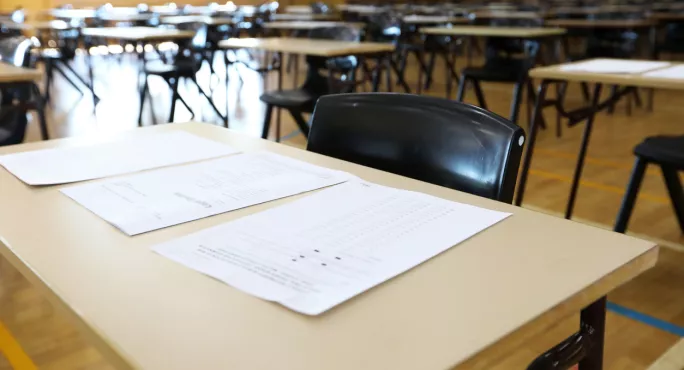Heads’ and teachers’ unions have proposed a set of “principles for fair assessment” when awarding this summer’s GCSE and A level grades to avoid the “chaos” of 2020.
A joint statement from the National Association of Head Teachers, the Association of School and College Leaders, the Association of Colleges, the NEU teachers’ union, the NASUWT teachers’ union and the National Governance Association, calls for assurance that students are assessed fairly following the cancellation of exams this year.
GCSEs 2021: Ofqual and DfE plan ‘unworkable’, say heads
Assessment: Heads say no to ‘mandatory mini-exams’
Boris Johnson: Exams won’t happen ‘as normal’
They are calling for exam boards to take responsibility for the appeals process, rather than appeals being made directly by students to schools as set out in plans from Ofqual and the Department for Education.
“Awarding organisations retain responsibility for issuing grades,” the unions’ statement says.
“They should only issue grades when they are confident the grades are reliable and valid. Appeals should therefore be made directly to awarding organisations, as the responsible bodies”.
The principles set out by the organisations also include:
- Exam boards should set out what standard is required for students to achieve each grade and these standards should recognise that students may have studied less of the course than usual due to the pandemic. Students should be able to demonstrate a standard of work in the content they have been taught. The standards should be consistent across all awarding organisations.
- Schools and colleges should be able to assess students on a range of evidence, with clear criteria from the awarding organisations about the types of evidence that can be used. Exam boards should provide support, guidance and assessment materials.
- Schools and colleges should be given clear and consistent guidance from exam boards about how to conduct internal quality assurance, and all schools and colleges may be moderated and required to provide evidence to the exam boards for the grades they have submitted for some students.
Geoff Barton, general secretary of the Association of School and College Leaders, said: “It is imperative that students are assessed as fairly and consistently as possible following the cancellation of exams, and that we avoid any repeat of the chaos of last summer.
“We believe that the principles we have jointly set out will give us the best chance of achieving that objective.”
Paul Whiteman, general secretary of school leaders’ union NAHT, said: “It’s important for young people’s sake that schools and colleges are able to award students the grades they deserve this year, allowing them to move forward with their chosen next steps.
“The education profession believes these principles will help that happen.”
Dr Patrick Roach, general secretary of the NASUWT, said: “It is imperative that the solution for qualifications this summer takes full account of the extraordinary conditions in which school and college staff are working by avoiding the addition of excessive and unnecessary workload burdens on teachers and leaders.”
Kevin Courtney, joint general Secretary of the NEU, said: “There are many details still to be finalised after the close of the consultation, but this document shows there is clear consensus amongst the profession on many of the issues.
“For the sake of grades which are as fair and consistent as possible for all students, it is important that DfE and Ofqual now take on board the principles laid out here.”
Ofqual and the DfE are expected to release final plans later this month about how students taking GCSEs and A levels will be assessed this summer. This follows a consultation exercise which closed last Friday.

